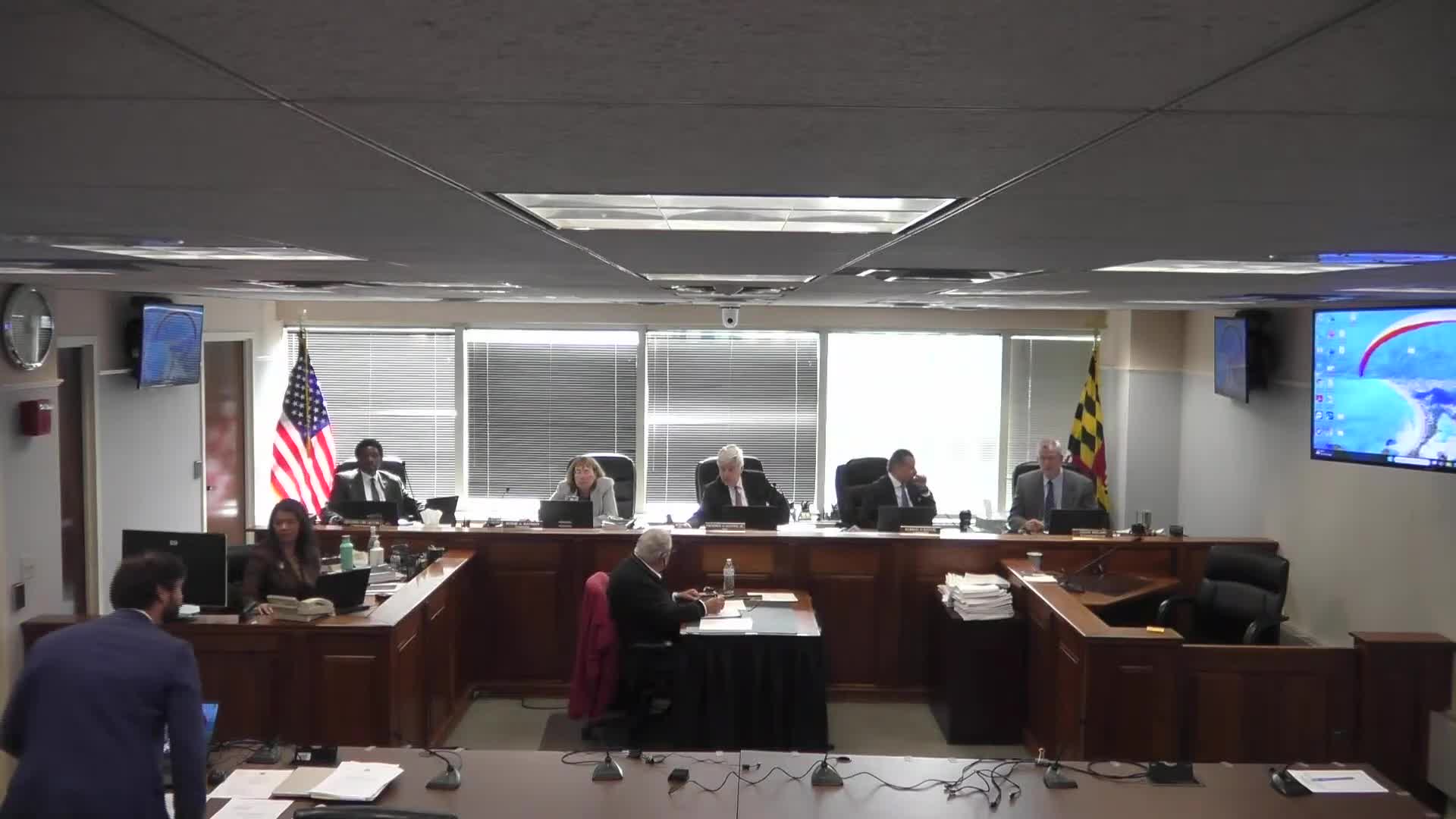People’s Counsel asks utilities to halt terminations for LIHEAP-eligible customers amid federal funding disruption
Get AI-powered insights, summaries, and transcripts
Subscribe
Summary
The Office of People’s Counsel asked the Public Service Commission to direct utilities to stop terminating service for customers known to be LIHEAP/OHEAP recipients amid a federal LIHEAP funding disruption, requesting a moratorium through March 31 plus a follow-up hold after funds are posted to prevent unnecessary reconnection fees and hardship.
The Office of People’s Counsel (OPC) asked the Public Service Commission on the record to direct utilities to stop terminating service for customers who are LIHEAP/OHEAP recipients, citing a federal government shutdown that has interrupted normal LIHEAP disbursements to states and local agencies. OPC attorney David Lapp requested a broad hold through March 31, plus an additional hold period after federal funds are released to allow OHEAP to post payments and prevent unnecessary reconnections and related fees.
OPC said the petition filed yesterday asks utilities to refrain immediately from terminating the service of customers known to be OHEAP recipients, to waive reconnection fees, late charges and deposits for customers who are later verified as eligible, and to restore service for customers who had been terminated but are found to be newly eligible. The petition asks OHEAP to provide weekly lists of newly approved recipients so utilities can reinstate service before clients shoulder reconnection costs.
Advocates and commissioners described the threat as urgent. “LIHEAP is a nearly 50‑year old program that plays an important role in ensuring that people don’t literally freeze to death,” a commissioner said on the record, and both advocates and some commissioners urged immediate action to keep vulnerable households from being disconnected. National Consumer Law Center attorney Olivia Wine said Massachusetts implemented a winter moratorium tied to last‑year LIHEAP recipients and extended it through April 1, and she urged similar protections here.
Utility representatives said they had just received the petition and needed time to respond in writing. Several utilities described protections they already maintain for customers who apply for or receive energy assistance: a computer flag that prevents disconnection for customers whose assistance is pending, temporary holds on collections, reconnection of customers later verified as eligible, and waivers of late fees and deposits in some cases.
- Southern Maryland Electric Cooperative (SMECO) said it is reviewing the petition and that, as of the meeting, it had not yet observed an interruption in LIHEAP disbursements in its area. - The joint Exelon utilities (BGE, Pepco, Delmarva Power) said they have plans to protect OHEAP-flagged customers (including a standard 55‑day hold and flexibility to renew protections) and to expand flexible payment options, waive late fees in some increments, and reconnect eligible customers. - Columbia Gas said it has temporarily suspended residential terminations in response to the shutdown for the duration of the event and has increased hardship-fund contributions; Columbia asked to be excused from the proposed statewide mechanism later in the meeting (see separate article). - Washington Gas said it voluntarily imposes a winter moratorium (Nov. 1–Mar. 31) on residential terminations regardless of OHEAP status.
Staff and several utilities warned against broad, unspecific messaging that simply tells customers “don’t pay” without also explaining how to apply for assistance or encouraging customers to pay what they can. Staff noted experience from COVID-era moratoria: very long payment plans and blanket statements that customers need not pay contributed to rising arrearages and created collection and affordability problems later.
Commissioners asked utilities to file written responses with details on: how they currently receive OHEAP eligibility data, the technical constraints of their billing and collections systems (for example the 55‑day hold many utilities already use), whether they can extend holds, the cost and timing of any IT changes needed to implement a longer moratorium, and how utilities would treat reconnections, deposits and refunding of fees if federal funds arrive after a disconnection. Chair Hoover set a short timetable for follow-up: utilities should provide initial written information and proposals within two weeks.
What was not decided: The commission did not adopt an emergency statewide moratorium at the meeting. The record reflects OPC’s petition and stakeholder testimony; commissioners requested written responses and additional data from utilities and OHEAP before making a regulatory determination.
Why it matters: LIHEAP (the federal Low Income Home Energy Assistance Program) is the primary conduit for seasonal energy-assistance dollars. If federal disbursements are delayed and OHEAP cannot post funds to customer accounts, households that normally rely on those funds may face termination, reconnection fees, and accumulated arrears. Stakeholders warned that without coordinated, short‑term steps there will be higher arrears, more reconnection costs for customers and operational impacts for utilities.
Key details and next steps: OPC requested protections through March 31 and an additional hold after OHEAP receives federal funds; OPC proposed weekly OHEAP lists of newly approved recipients. Utilities agreed to provide written, detailed responses in the next 14 calendar days describing technical capability, current practices, and what they would require to comply with a moratorium-style order. The commission staff will collect those filings and bring the issue back to the bench for further direction.
Provenance: OPC filed the petition and presented the request beginning at the public record (Public Conference 59) remarks; parties discussed the petition in the first portion of the conference and then turned to formal testimony and written filings for follow-up.
